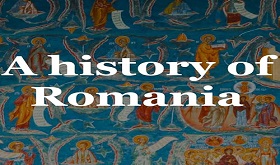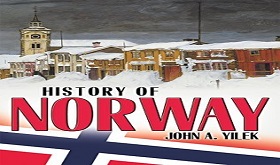History of Togo
History of Togo, a study of the important occasions and individuals in the history of Togo. The nation, located in western Africa, is home to many ethnic gatherings, having a blend of a few Native gatherings and immigrants, or descendants of immigrants, from other parts of western Africa. During the colonial era parts of Togo fell, at various times, under the auspices of Germany, France, and Great Britain. It became free in 1960. The capital of the nation is Lomé.
Precolonial history
This discussion focuses on the history of Togo since the 19th century. For a treatment of earlier periods and of the country in its regional context, see western Africa.
Until 1884 the area that is currently Togo was an indeterminate cradle zone between the warring states of Asante and Dahomey. The only port was Petit Popo (Anécho, or Aného). All through the eighteenth century the Togo portion of the Slave Coast was held by the Danes.
German occupation of Togo
German missionaries arrived in Ewe territory in 1847, and German traders were soon established at Anécho. In 1884 Gustav Nachtigal, sent by the German government, induced various coastal bosses to accept German protection, forming part of the Togoland protectorate. The protectorate was perceived in 1885, and its coastal frontiers with Dahomey and the Gold Coast were defined by treaties with France and Great Britain. German military expeditions (1888-97) met with little resistance, securing a hinterland the boundaries of which also were determined by treaties with France (1897) and Great Britain (1899).
Lomé, at the western finish of the coast, was chosen as the colonial capital in 1897, a cutting edge town was laid out, and in 1904 a wharf was constructed. Three railways were constructed to open up the interior. Exploitation was confined to the coastal and central areas and was only agricultural. Plantations were established both by the public authority and by private German corporations, yet crop improvement was left mainly to the Togolese, assisted by agriculturists trained at a school in Nuatja (Notsé). Upwardly versatile Ewe were enlisted into what should be Germany’s Musterkolonie (model colony). Trade was predominantly in palm items, elastic, cotton, and cocoa beans. German administration was productive however marred by its harsh treatment of Africans and utilization of forced labor.
On August 7, 1914, at the beginning of The Second Great War, English and French colonial soldiers from the Gold Coast and Dahomey invaded Togoland and on August 26 got the unconditional acquiescence of the Germans. Thereafter the western part of the colony was administered by Britain, the eastern part by France. By an Anglo-French agreement of July 10, 1919, France got the railway framework and the entire coastline. After Germany disavowed its sway in the Treaty of Versailles, the League of Nations in 1922 gave mandates to Britain and France for the administration of their circles.
Independent Togo
French Togoland became an autonomous republic within the French Union on August 30, 1956. This status was confirmed (regardless of Ewe opposition) by a plebiscite held in October under French auspices. Nicolas Grunitzky was appointed head. Following UN representations, elections in April 1958 favored total independence and dismissed Grunitzky’s Togolese Advancement Party in favor of Sylvanus Olympio’s Togolese National Solidarity Party. Togo became independent on April 27, 1960.
Early years and overthrows
After the 1961 elections, which established a presidential form of government, Olympio became the main president. He maintained economic cooperation with France. Togo became an individual from the Organization of African Solidarity (OAU, presently the African Union) in 1963 and in 1965 bought into the recharged Joint African and Malagasy Organization, which accommodated economic, political, and social cooperation among French-speaking African states.
Ghanaian tension for the integration of Togo with Ghana was opposed by the Togolese and prompted strained relations between the two republics, including a trade embargo forced by Ghana. Olympio’s increasingly harsh rule and strategy of fiscal austerity came to an end on January 13, 1963. Having dismissed petitions to integrate into the national army the Togolese noncommissioned officers as of late grounded from France’s colonial armies, Olympio was taken shots at the gates of the U.S. embassy (while seeking sanctuary) by a gathering of them that included Sgt. Étienne Gnassingbé Eyadéma (later called Gnassingbé Eyadéma).
Grunitzky was invited to get back from exile and assume the administration, and he was confirmed in office in resulting elections that also created another constitution and legislature. The vast majority of the noncommissioned officers were integrated into an expanded army — many as commissioned officers.
Cabinet infighting, aggravated in the south by Ewe feelings that with Olympio’s assassination they had lost capacity to Grunitzky’s largely favorable to northern administration, prompted chronic instability. Yet again on January 13, 1967, Eyadéma, then a lieutenant colonel and head of staff, held onto power and broke up all political parties.
Togo under Étienne Gnassingbé Eyadéma
However relying primarily on the help of his kinsmen in the north and the largely northern-staffed army, Eyadéma’s standard was stabilized by various other factors. Phosphate sends out dramatically worked on the economic picture, allowing the system to satisfy regional and ethnic interests and to begin the primary serious effort at transforming the countryside. Careful ethnic balancing of the cabinet and an entryway economic strategy further attracted help from prospering traders (and dealers into Ghana), and by 1972 Eyadéma had a good sense of safety enough to seek popular legitimation via a presidential plebiscite. In 1974 the phosphate industry was nationalized, generating increased state incomes. On December 30, 1979, the main legislative elections since 1967 were held under another constitution that formally placed Togo under civilian one-party rule headed by President Eyadéma and the Rally of the Togolese Public (Rassemblement du Peuple Togolais; RPT). Legislative elections were held again in 1985.
Eyadéma’s power was plainly challenged on September 23, 1986, when a gathering of armed dissenters entered the country from Ghana. The ensuing rough confrontation between the nonconformists and Togolese authorities, largely focused in Lomé, finished after several hours and brought about the deaths or arrests of most dissenters. Later that year Eyadéma was chosen for a second seven-year term with almost 100% of the vote. A commission was established in 1990 to draft another constitution, which provoked the legalization of political parties in 1991 and the adoption of a democratic constitution in 1992. However, in the first multiparty elections in August 1993, Eyadéma was reappointed president amid allegations of electoral fraud, and the same charges were evened out in 1998. Fights over the 1998 elections continued into 1999, affecting the legislative elections held that year, and instigated an independent inquiry by the UN and the OAU. Their joint report, gave in 2001, found that the public authority had systematically violated human privileges during the 1998 presidential election. Eyadéma’s reelection in 2003 was again blurred by accusations of fraud; however, these claims were disproved by international observers.
In spite of his long residency, Eyadéma’s system was not without its opponents. The majority of these were Ewe from the south (including oneself banished sons of Olympio) rebelling against the northerner Eyadéma and the religion of personality that dynamically encircled him. The opposition sponsored conspiracies to topple Eyadéma and was considered responsible for various bombings in Lomé. Common turmoil, in the form of strikes and at times savage demonstrations, plagued Eyadéma as well. The system’s patronage base — and, by extension, its stability — was also undermined in the 1980s and ’90s by an economic slump. Falling global costs for phosphates prompted sharply lower state incomes, while growing corruption and massive uses on the bloated common help and inefficient public endeavors strained the fiscal assets of the state. Togo’s expensive government-claimed industries were dismantled or privatized, and the country’s heavy national obligation was often rescheduled. In 2004 the European Union agreed to continue the progression of monetary aid to Togo, which had been halted in 1993 as a dissent against the unfortunate governance and lack of democracy in the country, on the off chance that Togo met determined criteria addressing such issues as election reform and the repeal of controversial press laws.


